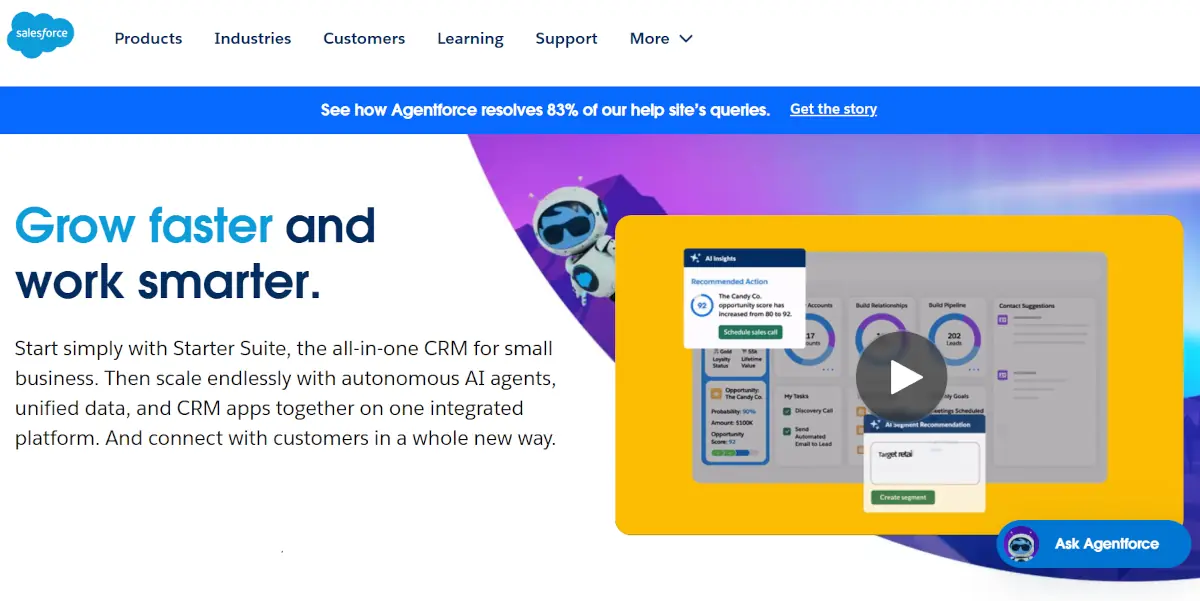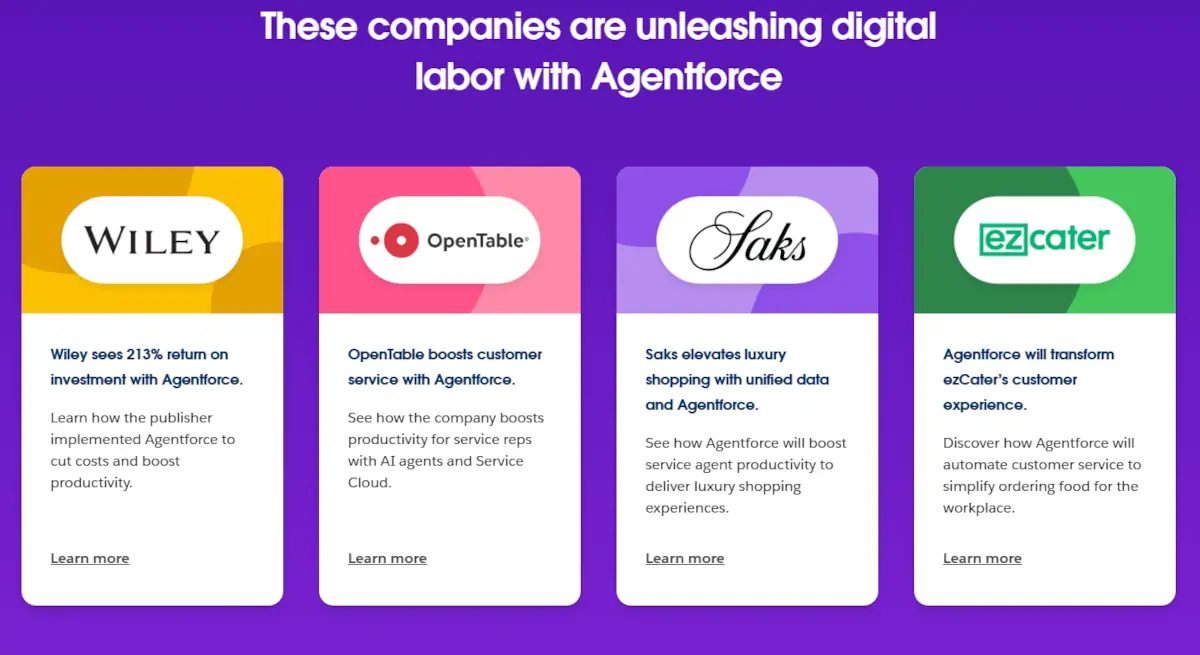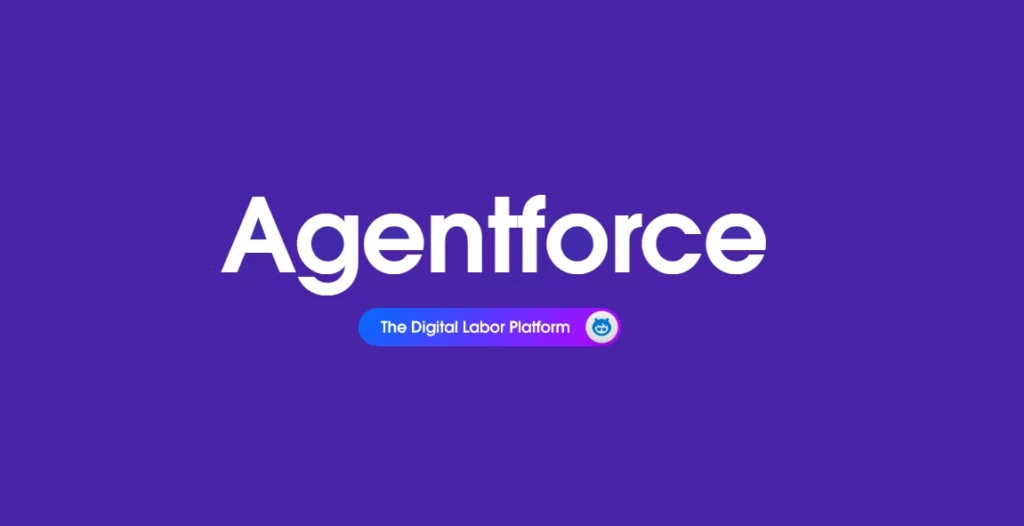The CRM sector has accelerated significantly with Agentforce introducing ChatGPT-like capabilities into the customer relationship field. What’s new: the development of specialized conversational agents that incorporate the company’s operational style into their responses…
The introduction of ChatGPT at the end of 2022 took many sectors by surprise. The customer relationship field couldn’t escape this revolution, paving the way for AI integration into a variety of applications. Salesforce, a leading player in the CRM industry, has long been working on this evolution, culminating in a service that aligns with the new demands of businesses: Agentforce. What does it involve?
Who is Salesforce?
The Salesforce company was founded on February 3, 1999, in San Francisco, by a key figure named Marc Benioff.
Previously an executive at Oracle, Benioff began his journey there as a developer – notably, he long embraced a somewhat unconventional look. However, his sharp business acumen and ability to devise successful sales strategies soon propelled him up the ranks. By the time he left Oracle in 1999, he had ascended to the position of vice president.
Yet, during his tenure at Oracle, Marc Benioff observed numerous deficiencies in enterprise software, particularly CRM (Customer Relationship Management).
The creation of Salesforce was Benioff’s vision to design CRMs for the sales forces —as it translates to in English—that would be as user-friendly as a website like Amazon. At a time when most software was installed locally on business PCs, he perceived the value of Salesforce’s services being cloud-based and thus, accessible from anywhere. This model was known as SaaS (Software as a Service), with modules offered via subscription, allowing for adaptable budgeting. Marc Benioff aimed at the sales force market, recognizing its critical role for businesses.
Salesforce experienced swift growth, securing prominent clients such as Cisco and the Financial Times. By 2003, the company had 5,000 clients. It went public in the following year and embarked on its global expansion. By 2009, it had emerged as the leader in cloud-based CRM solutions, surpassing Siebel Systems (later acquired by Oracle). Read more about Salesforce Service Cloud.

What is Agentforce?
Agentforce initially emerged in 2003 as a specialized version of Salesforce’s flagship CRM platform, with a focus on real estate agents and professionals.
The 2024 version of Agentforce serves a much wider purpose: it is a platform for autonomous AI agents, available around the clock. It is designed to assist sales teams and numerous related professions, and even clients themselves, via chatbots that can integrate a deep understanding of the company into their responses. This development represents a significant advance in Salesforce’s offerings, incorporating generative artificial intelligence. Salesforce first incorporated AI with its Einstein platform in 2016, but the emergence of ChatGPT compelled Marc Benioff’s company to advance further.
Creating AI agents
The core concept behind Agentforce is to facilitate the creation of customized autonomous AI agents using natural language, which understand the company’s culture, data, and internal and external policies. These AI agents primarily address customer inquiries but can also be used for various other purposes, such as optimizing a marketing campaign or even training for sales pitches.
Key features of Salesforce
Creation of customized agents
Through natural language commands and suitable interfaces, managers can develop agents tailored to their specific needs. These agents leverage the entire Salesforce ecosystem: Data Cloud, Slack, Tableau, MuleSoft… They can analyze available data and make informed decisions. Salesforce thus envisions these agents as “virtual workers,” extending beyond traditional CRM functions.
Reasoning engine
Agentforce is built on Atlas, a reasoning engine employing reinforcement learning to enhance performance in real-time. Agents can constantly refine their responses and actions and anticipate a contact’s needs by analyzing millions of data points.
Securing interactions
Agentforce relies on the Einstein Trust Layer, a security and ethical framework developed to foster the responsible and secure use of artificial intelligence. Prospects attempting to “game” the system or pose inappropriate questions will find their requests unaddressed.
Library of pre-configured actions
Salesforce has partnered with companies such as AWS (Amazon Web Services), Box, Google, IBM, Workday, and Zoom to offer a range of agents and workflows available through the Salesforce AppExchange marketplace. Users have access to over a hundred pre-configured actions.
Initial feedback
On December 17, 2024, just over a month following Agentforce’s release, Salesforce announced it had closed a thousand contracts related to the new service. Among the companies adopting Agentforce is the publisher Wiley, which reported a more than 40% improvement in incident resolution compared to the previous chatbot. Similarly, FedEx, IBM, Accenture, and RBC Wealth Management have embraced Agentforce to automate complex tasks.
During an event discussing this announcement, Marc Benioff revealed that Salesforce had also demonstrated its effectiveness internally: it now requires half as much human intervention to resolve first-level customer inquiries.











